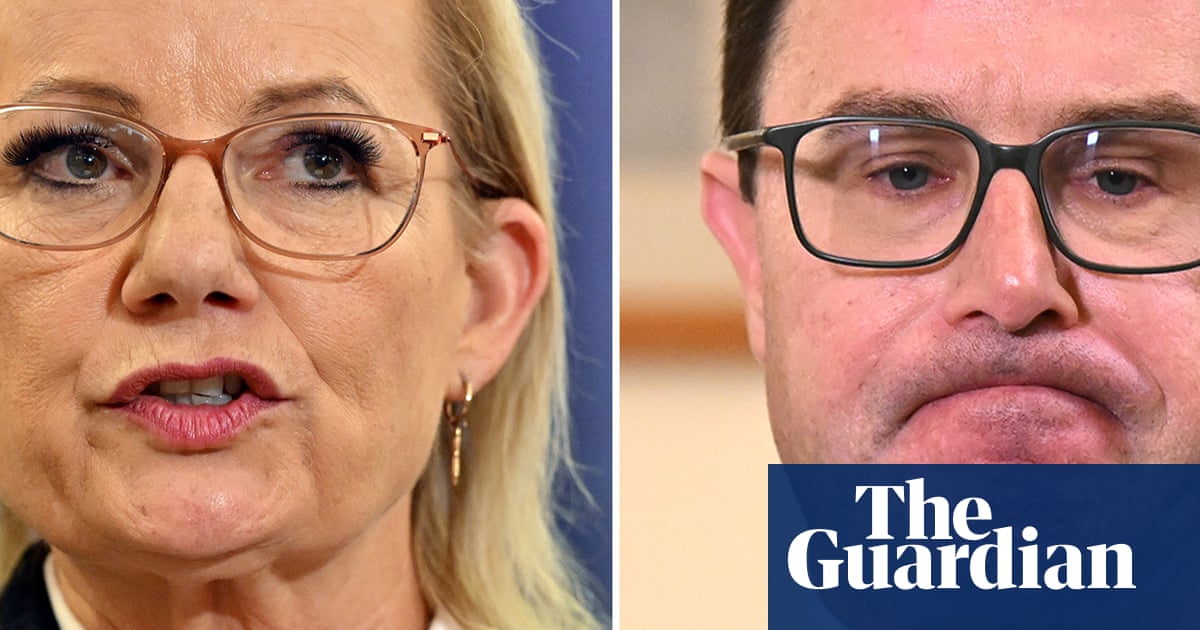Senior Liberals warn the Nationals’ decision to quit the Coalition could damage theLiberal partyfor years to come, while others welcome a chance to refocus on urban voters after a devastating election loss.
The Nationals leader, David Littleproud, made theshock announcement to formally split with the Liberalson Tuesday afternoon, breaking up theCoalitionfor the first time since the 1980s.
Negotiations broke down when the minor party requested several policies be locked in before an agreement was reached, including nuclear energy stations, a $20bn regional Australia future fund and forced break up powers in the supermarket sector. The new Liberal leader,Sussan Ley, was unwilling to make “captain’s calls” and refused.
Sign up for Guardian Australia’s breaking news email
Guardian Australia has spoken to multiple senior Liberal MPs who hope the Nationals will return to the fold once they realise neither party can win office alone. But they fear this will become a very difficult prospect once deep policy divergences set in and are openly debated.
Some have also raised concerns that Liberal colleagues may be unwilling to hand back shadow ministries to accommodate the Nationals, if they decided to return to theCoalition. As a result of the split, more Liberal backbenchers will received promotions to shadow ministries.
Some MPs were hopeful the Nationals would return to the Coalition within six months to a year, but warned Liberal candidates would then need to explain to voters which, if any, of the Nationals policies they had accepted as a compromise.
The former prime minister John Howard has urged the two parties to reunite as soon as possible, before policy fights make it impossible.
“If they are separated for too long, they will increase their differences and make resolution more difficult,” Howardtold the Australian Financial Review.
But the former moderate Liberal MP and NSW state director, Jason Falinski, said the split, albeit perhaps temporary, presented a chance for the party to focus on rebuilding its urban base.
“I think it’s actually great,” Falinski said. “Ultimately, it depends on what we do with it because it allows us to reset and focus on economic reform and reframing debates in terms of economic prosperity that matter to people.
“There are a whole bunch of policy areas that matter to a whole group of people in a whole new constituency that we can now start talking to and hopefully get their support.”
Sign up toBreaking News Australia
Get the most important news as it breaks
after newsletter promotion
Andrew Wallace, a Liberal backbencher said he was disappointed by the Nationals decision but outlined opportunities ahead.
“All of the shadow ministries will go to the Liberal party and all of the resources that go with that,” Wallace said. “We don’t have to share the spoils of opposition, if there is such a thing”.
Wallace said the split was not without precedent and had instructed one of his senior staffers to “dust off the history books”.
This is the first split since a short breakup over the “Joh for PM” push in 1987, which aimed to have the then Queensland premier, Joh Bjelke-Petersen, lead the Liberals and Nationals in Canberra.
The Liberals and Nationals did not enter a coalition after Gough Whitlam’s 1972 election victory, but ran together at the 1974 poll.
“The position that Sussan has arrived at is a principled decision and it is the correct decision,” Wallace said. “We can’t sign away our right to take certain positions on policies as a pre-condition of entering into the Coalition agreement – that is not on.”
The former Victorian Liberal premier Jeff Kennett said he was confident the two parties would reunite before the next election. The Victorian coalition split in 1999, before returning to a formal partnership in 2008 after several election losses.
“They do need each other,” Kennett said. “There will be a lot of policy thoughts over the next 18 months and ultimately, there will be some common sense applied in the lead up to the next election.
“They will probably come back into Coalition because if they don’t, there is the prospect of them standing against each other. That is very expensive and one of the beauties of a Coalition is you focus on the seats you hold and the ones you want to win, rather than worrying about each other.”
